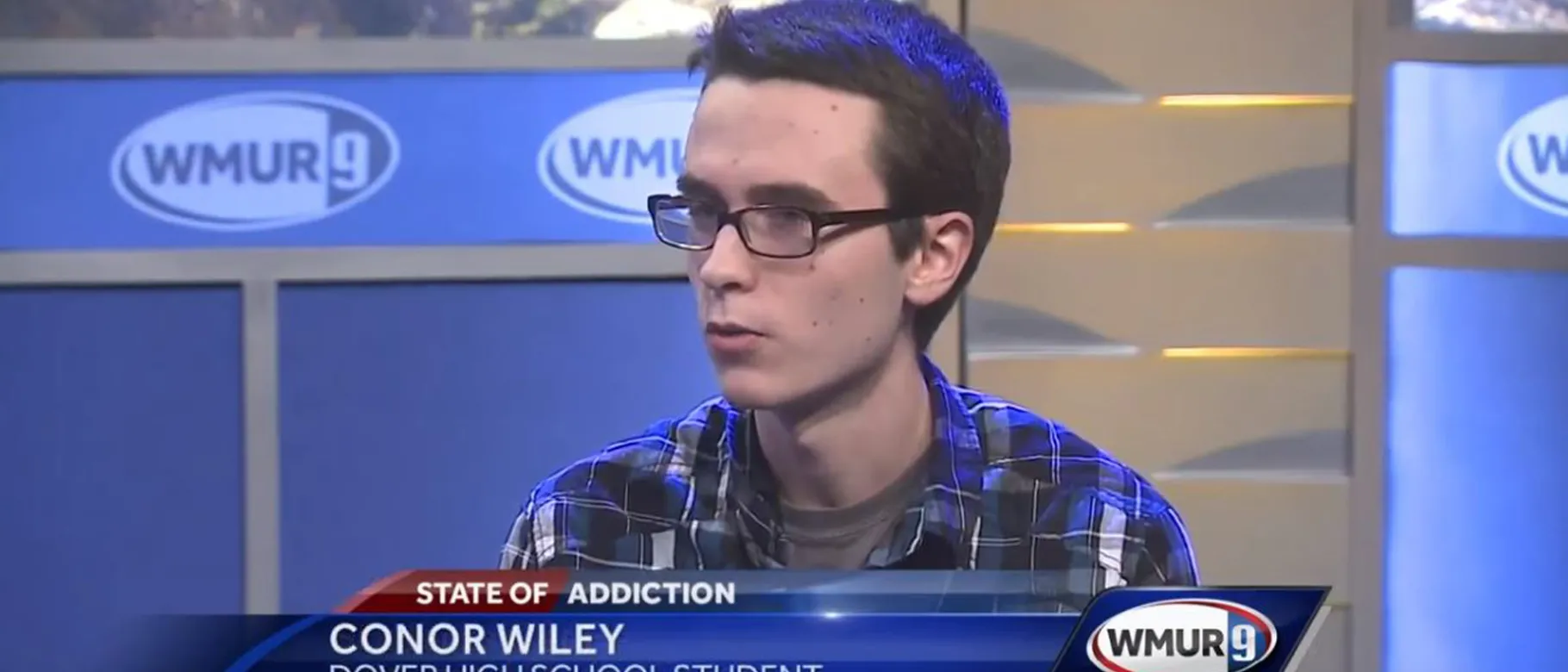Sophomore Conor Wiley spreads message of youth empowerment

While many college students are counting down the days to winter break, looking forward to home cooked meals, not having to do their own laundry, and lazy days in front of the television, one UNE sophomore, Conor Wiley (Marine Biology), is preparing for a bit of a less relaxing vacation. On January 6, he will be flying out to a conference in North Carolina to serve as a youth empowerment program trainer. It’s the type of gig he has done many times before.
Wiley, a native of Dover, New Hampshire, is a nine-year veteran of a nationally recognized drug-prevention program, Dover Youth to Youth -- an organization much sought after by other youth empowerment and substance abuse prevention groups throughout the country that are looking to learn the ropes from one of the most successful programs of its kind.
Dover Youth to Youth, now in its 27th year of operation, is an after-school program for middle school and high school students in the Dover public school system. But it is not your typical after-school club. Coordinated by the Dover Police Department, Dover Y2Y is a rigorous program that seeks to empower kids with the skills they need to effect real change. While the program is headed by three adults, it is the kids, says Wiley, who play the central role in the organization’s goals and activities. “It’s a common misconception that the adults run it – that they come up with everything and say, ‘Here’s what you’re going to do.’” Wiley explains. “Actually, what they do is say, ‘What do you think are problems?’ And the kids will identify a problem, figure out a way they want to solve it, and form a smaller committee within the group to take action.”
The program divides kids by talent and interest into groups that work on four different types of prevention activities. Some are involved in media production, creating public service announcements for radio, for example. Others focus on community and school awareness campaigns. One group directs its efforts towards legislative issues at the local or state level, and another group, the one with which Wiley most strongly identifies, creates and carries out presentations at schools, conferences, and other locations. As a member of the organization’s University Team (a group of Dover Y2Y alumni who wish to remain active in the program), Wiley is called upon from time to time when extra adult hands are needed. Last summer, he staffed a week-long advocacy conference in Nebraska.
Wiley wasn’t always a natural public speaker, he notes. But the skills he developed in Dover Y2Y uncovered a passion for presentation and teaching. “They say that I’m the poster child for how this program can turn people into youth leaders because when I was coming out of fifth grade, I was the shyest, most quiet kid you’ll ever meet,” he shared. “I was not really comfortable at the middle school yet, I didn’t have that many stable friends, and I wanted to talk to no one and do nothing in terms of public speaking.”
He sees his potential dream-job as one that combines his love for marine biology with his penchant for teaching and explaining. Though he doesn’t think that being a classroom teacher or a professor is a good fit for him, he envisions himself possibly as a presenter at an aquarium. “I want to bring education into it somehow,” he says of whatever job he lands in the marine field.
No matter what his future profession holds in store for him, Wiley is confident that the communications skills that he has developed during his years with Dover Y2Y will serve him well. In addition to those skills, Wiley says that a sense of responsibility is one of the most important things he has learned from his Youth to Youth involvement. And coming from someone who is forgoing opportunities to sleep until noon and binge-watch Netflix, that’s not hard to believe.
